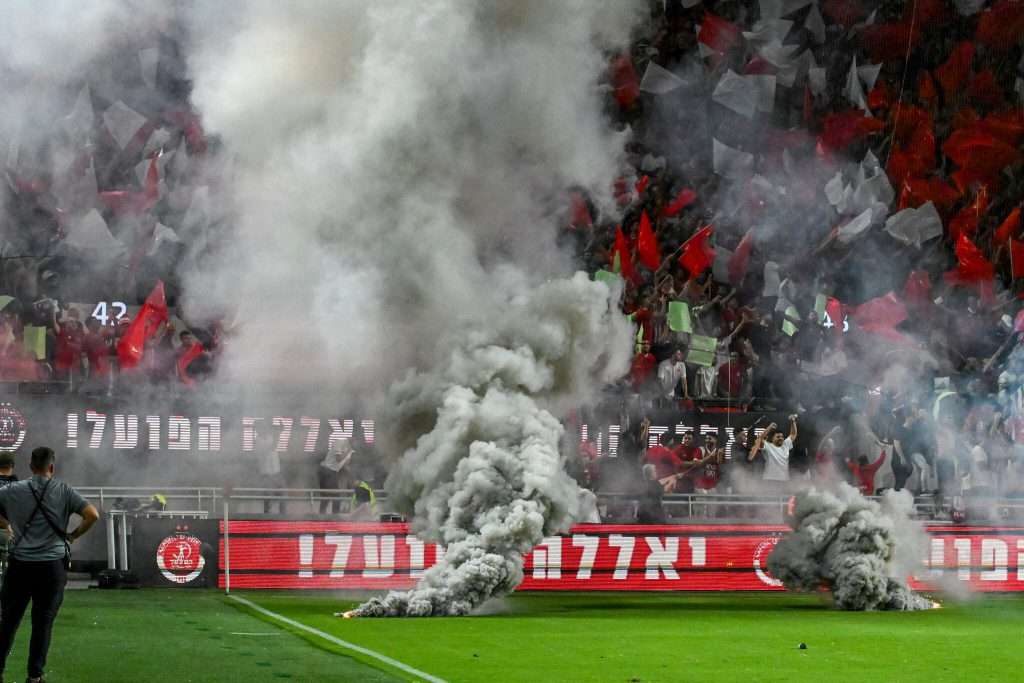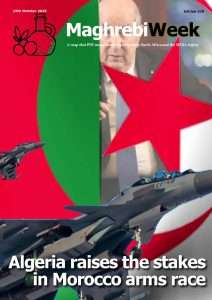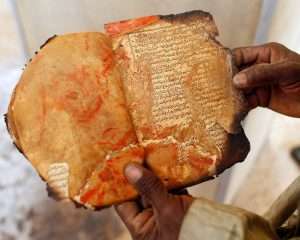Israeli Premier League derby cancelled after “violent riots”

The Israeli Premier League derby between Maccabi Tel Aviv and Hapoel Tel Aviv was cancelled before kick-off on October 19th, after violent clashes erupted outside the stadium in what police described as “public disorder and violent riots.”
Officers reported that dozens of smoke grenades and pyrotechnic devices were thrown, leaving twelve civilians and three police officers injured, according to the BBC. Nine people were consequently arrested and sixteen detained for questioning.
The incident has reignited debate over the intersection of sport and politics in Israel, where football has increasingly mirrored the country’s deepening social and political divides alongside its isolation on the international stage. Hapoel Tel Aviv condemned the authorities’ handling of the situation, accusing the police of “preparing for a war, not a sporting event,” and argued that the decision to cancel the match “only demonstrates that the Israel Police has taken control of the sport.” Maccabi Tel Aviv has yet to issue a full statement beyond confirming the cancellation.

The violence follows mounting controversy abroad, after Birmingham’s Safety Advisory Group in the UK ruled that Maccabi Tel Aviv fans would not be allowed to attend their club’s Europa League match against Aston Villa on November 6th due to safety concerns. The decision, supported by West Midlands Police, has been widely criticised as discriminatory and politically-charged, with the UK government now working to overturn the ban.
Police in Birmingham justified the restriction by pointing to “violent clashes and hate-crime offences” during Maccabi’s Europa League match against Ajax in Amsterdam in 2024, where over 60 arrests were made. Authorities cited a pattern of unrest surrounding fixtures, arguing that the risk of similar violence remained high.
The violence and subsequent cancellation of the Tel Aviv derby underscores how football and international sport as a whole has become a flashpoint for broader tensions surrounding Israel’s global standing. In recent months, protests linked to the the genocide in Gaza have disrupted multiple sporting events, including international qualifiers involving the Israeli national team.
As questions grow over Israel’s place in international sport due to the genocide in Gaza, whether or not Israeli teams should be allowed to compete has become a hot topic. The Tel Aviv derby stands as a stark example of how the boundaries between sport and politics are collapsing under the weight of public unrest in Israel and abroad.
Authorities in Birmingham will be feeling vindicated by the convenient timing of this riot, especially after receiving extensive criticism from Israel and across the British political spectrum for their decision to ban Maccabi Tel Aviv fans from the game against Aston Villa in November.
BBC, Maghrebi.org
Want to chase the pulse of North Africa?
Subscribe to receive our FREE weekly PDF magazine














